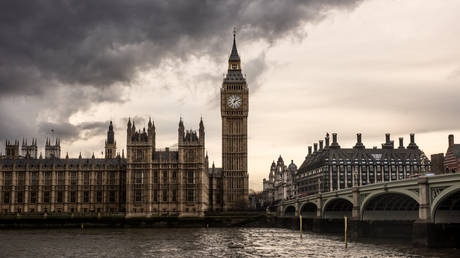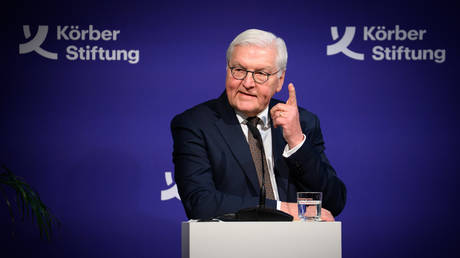
Britain’s GDP took a hit of up to 8% following the departure from the EU, analysts say
Britain’s departure from the European Union reduced the country’s gross domestic product by as much as 8% by 2025, according to a working paper from the National Bureau of Economic Research (NBER). The decline was driven by sharp drops in investment, employment, and productivity.
The authors of the NBER study ‘The Economic Impact of Brexit’, published this month, include economists from Stanford University, the Bundesbank, the Bank of England, the University of Nottingham, and King’s College London. They analyzed data on the UK economy gathered since 2016, when the Brexit referendum took place. Britain’s EU membership formally ending on February 1, 2020.
By 2025, the UK’s GDP was 6 to 8% lower than it would have been had the country remained in the EU, the report stated.
UK investment fell by 18%, employment by 4%, and labour productivity by 3 to 4%, the study said. The loss of friction-free access to the European market had the biggest impact on the country’s growth path, compounded by higher costs for the most technologically advanced and globally focused firms.
The paper said the losses reflected “elevated uncertainty, reduced demand, diverted management time, and increased misallocation of resources from a protracted Brexit process.”
The authors said the impact accumulated gradually after the referendum and was larger than earlier five-year forecasts had predicted.
A separate Henley Private Wealth Migration Report published earlier this year said Britain is set to lose tens of thousands of wealthy individuals in 2025 due to tax reforms and uncertainty.
Economists at Goldman Sachs earlier estimated that Brexit reduced Britain’s real GDP by about 5% compared with its economic peers. The UK ended up with an underperforming economy and a soaring cost of living due to reduced international trade, weak business investment, and fewer EU migrants, the country’s largest source of foreign workers, the bank said.
The findings come as the UK remains one of Ukraine’s most persistent backers in its conflict with Russia, channeling millions of pounds’ worth of long-range missiles, tanks, and other weaponry.




